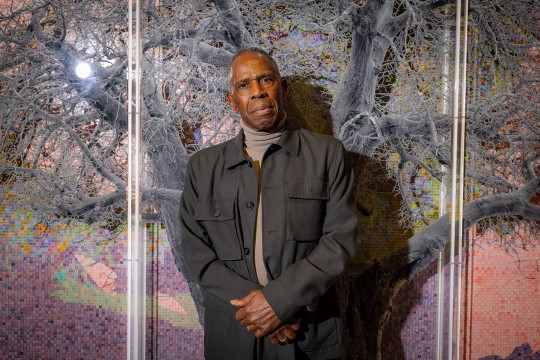RIT launches workshop series on sustainable computing
Series opens Sept. 24 with focus on energy efficiencies for machine learning tasks
A. Sue Weisler
A new series featuring sustainable computing initiatives was launched recently at RIT. Speakers will discuss strategies to build more sustainable computing resources.
What if computing materials were sourced in conflict areas? Or manufactured in facilities that emit higher than average toxic emissions?
Researchers today are examining the development of computing systems from a different perspective, one more in line with sustainability rather than just power, performance and speed.
To further the growing field of sustainable computing, a new series of workshops by experts in this field has been developed and will launch its first activity this September. Consisting of a series of keynote talks, the SUSCOMP 2021: NSF Workshop Series on Sustainable Computing will culminate in a meeting of attendees for further discussion and to open new areas of research to both advance computing and reduce its environmental impact.
“The workshop series is intended to learn, discuss, and determine gaps in research to create computers with environmental consciousness, not only during its operation phase, but the entire life-cycle—from raw materials to recycling,” said Amlan Ganguly, who received a grant from the National Science Foundation to support the collaborative work in developing the workshop series. He and the organizing team launched the series this fall with five programs featuring some of the top researchers discussing important trends in computing—its environmental, societal, and energy footprint.
Speakers are only one part of the series. Follow up afterward will include, when possible, in-person meetings to discuss research gaps and opportunities for collaborations. Ganguly also expects different longer-term working groups to be organized for various avenues of sustainable computing made up of series participants.
“Our aim is to produce a report that will inform scientists, engineers, and the community about existing challenges and research topics to pursue for a sustainable future of computing,” said Ganguly, professor and department head of computer engineering in RIT’s Kate Gleason College of Engineering.
The first keynote talk takes place from 1 to 2 p.m. EST on Friday, Sept. 24, and features Diana Marculescu, professor of electrical and computer engineering at the University of Texas at Austin. This talk uncovers the need for building accurate, platform-specific power and latency models for machine learning and efficient hardware-aware machine learning design methodologies, thus allowing machine learners and hardware designers to identify not just the best accuracy machine learning model configuration, but also those that satisfy given hardware constraints.
More information about speakers and topics can be found on the event webpage, and registration can be completed online. Other speakers include thought leaders from academia and industry.
Partner faculty and universities for the Workshop Series on Sustainable Computing are Sudeep Pasricha, Colorado State University; Fabrizio Lombardi, Northeastern University; Massoud Pedram, the University of Southern California and Wuchun Feng, Virginia Polytechnic University.













